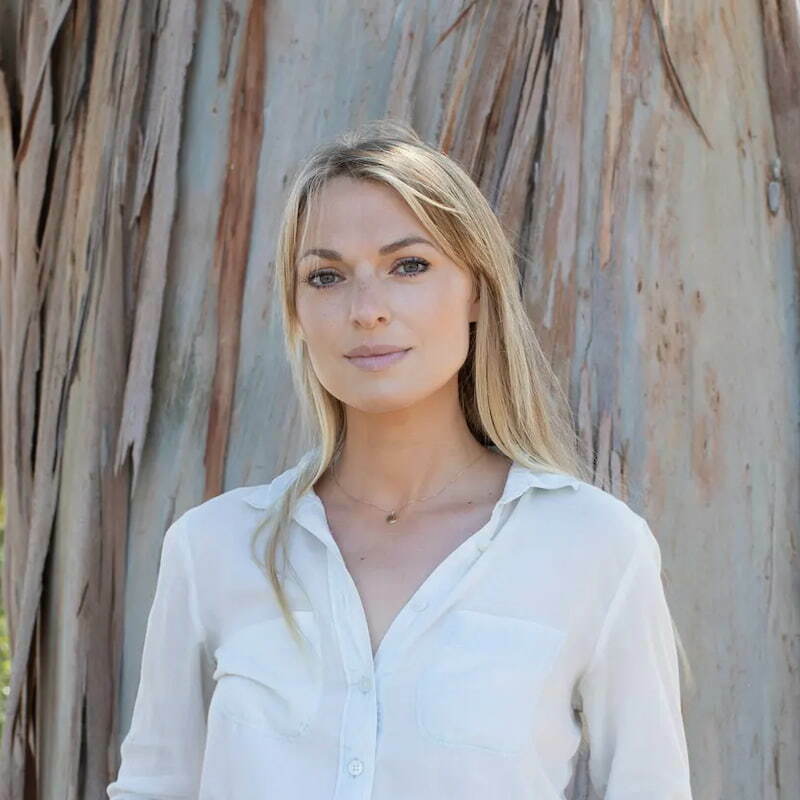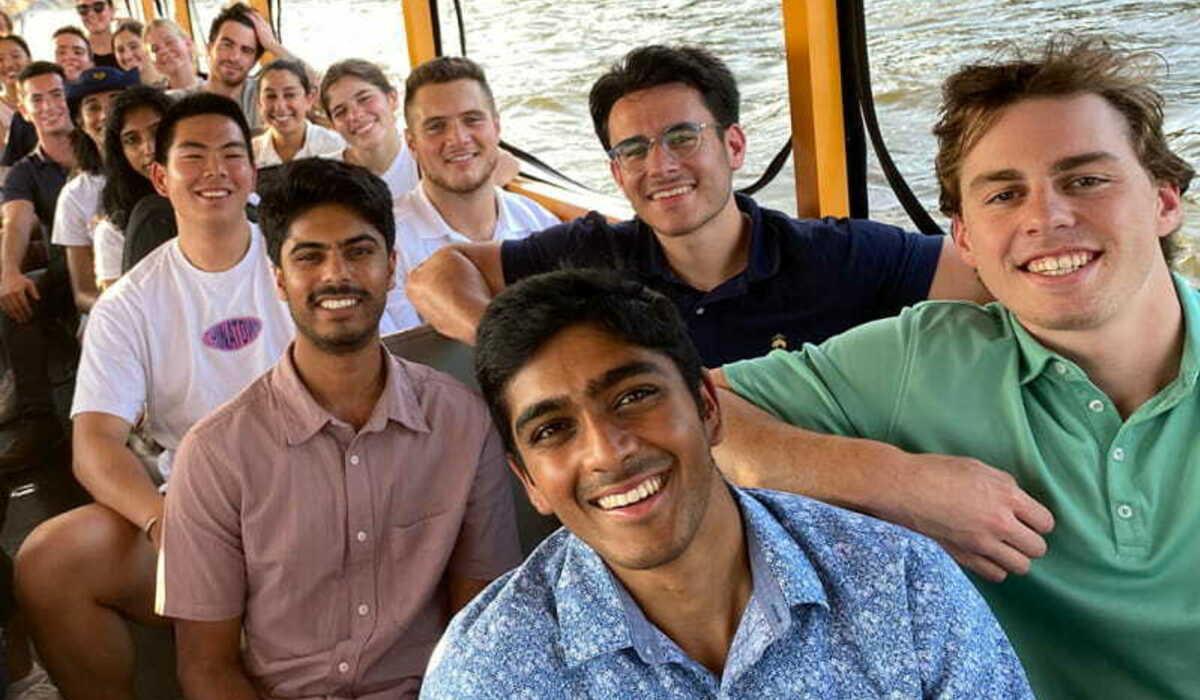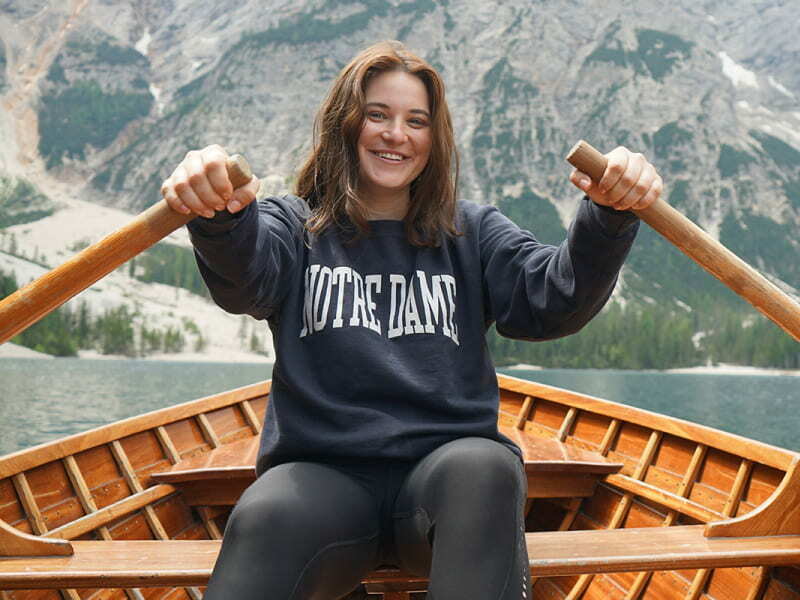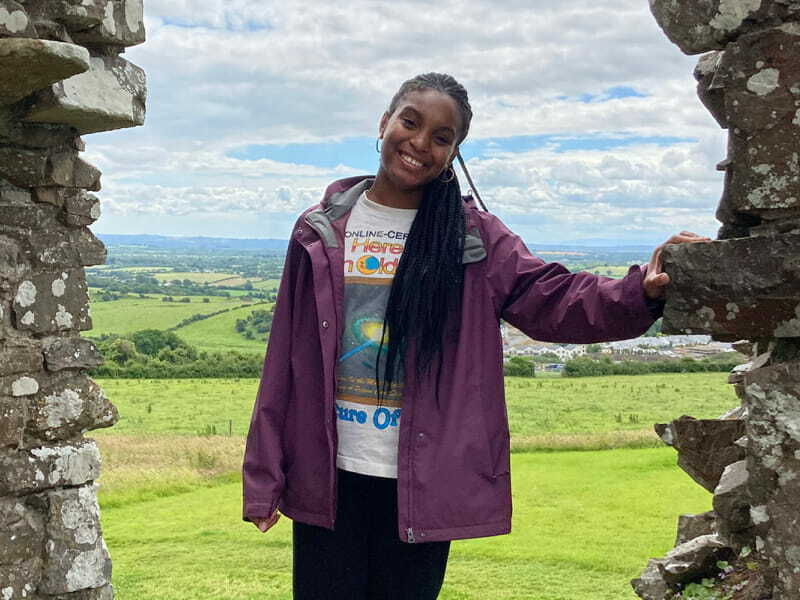The Liberal Arts at Notre Dame

A Notre Dame liberal arts education won’t just help you figure out what you want to do in life — it will also help you determine who you want to be.
Our students’ intellectual curiosity is insatiable. They want to study everything — majoring in economics and English or music and neuroscience, while dabbling in courses in classics or art history. They add a minor in sport, media, and culture or data science because they’re fascinated by the subject. They contemplate what it means to live a good life through theology and philosophy classes, then discover how the Catholic commitment to seeking truth extends to all fields of study.
An Arts & Letters education isn’t confined to the classroom, either. Our students learn to communicate effectively in another language, then spend time abroad to be immersed in another culture. They do research with professors in anthropology or history because they want to learn more and help create knowledge for the world. They land exciting internships and network with innovative professionals from a wide range of industries as they contemplate which career path to pursue.
Through it all, they’re encouraged and challenged to grapple with the great questions, enduring issues, and current challenges that confront society. They learn to read critically and analyze data, to write crisply and speak persuasively, to work effectively in teams and with people of diverse perspectives — all in preparation for becoming a force for good as the professional, community, and Church leaders our world needs.

Tess Gunty ’15
Novelist, The Rabbit Hutch; National Book Award winner
English major
“A Notre Dame liberal arts education is valuable because it’s so expansive, and it pushes you in directions that you wouldn’t go otherwise. It taught me the value of curiosity, and curiosity in service to compassion and justice. Every course I was taking, no matter what subject, forced me to think about what human beings owe each other and how we might use the knowledge that’s been acquired over centuries of human experience to promote justice rather than to be destructive.”
-
Tess Gunty ’15
Novelist, The Rabbit Hutch; National Book Award winner
English major“A Notre Dame liberal arts education is valuable because it’s so expansive, and it pushes you in directions that you wouldn’t go otherwise. It taught me the value of curiosity, and curiosity in service to compassion and justice. Every course I was taking, no matter what subject, forced me to think about what human beings owe each other and how we might use the knowledge that’s been acquired over centuries of human experience to promote justice rather than to be destructive.”
-
Carlos Lozada ’93
Columnist, The New York Times; Pulitzer Prize winner
Political science and economics major“The liberal arts education at Notre Dame really helped me to learn how to think, how to marshal my arguments, how to learn from people around me.”
-
John Blasi ’90
Information security group managing director, Accenture
Program of Liberal Studies major“My liberal arts education has been really key to helping with things like critical thinking, communication, and storytelling, which is a big part of any kind of program management or journey management. That ability to connect with your audience, to make things real, is just critical in any kind of executive role. And you get that from the liberal arts.”
-
Arienne Thompson Plourde ’04
Senior program manager for global social impact, Google Data Centers
History and Japanese major“For these four years, your job is to be curious and to dabble in this and that — maybe you’ll discover that you love Japanese or Arabic or art history. This is the time to branch out and to be whoever you want to be. Let your interests guide you and find something you love.”
-
Tim Keller ’00
Mayor, Albuquerque, New Mexico
Art history major“Arts and Letters fundamentally comes down to empathy, which you learn academically by studying other people’s works or other time periods. It translates to interpersonal empathy, or even in my job now, being able to understand a city. It allows me to understand where people are at, and I think that’s critical to being a good mayor or a good public servant.”
As Arts & Letters students carry the skills they’ve honed and their passion for learning into the world, their potential is limitless. They get great jobs, enter prestigious graduate programs, or join full-time service programs — but their journey doesn’t end there.
Their Notre Dame liberal arts education has prepared them to do anything — they’re ready to flourish no matter where their path leads.
“There are many things taught at this University, but at the heart of all of them are the liberal arts.”
“The investment you make in college is not just for the four years of college or for that first job after college. It’s for a lifetime.”
Sarah A. Mustillo, I.A. O'Shaughnessy Dean of the College of Arts and Letters

“The Arts & Letters education is a fantastic track for students who desire to study and expand their knowledge beyond the traditional science field. For me, I’ve always wanted to be taking science classes, but Arts & Letters gives me a vocational perspective — an ability to think and speak about big-picture issues beyond knowing basic chemistry and biology.” Read More
—Anoop Sunkara ’23, economics and A&L pre-health major

“The things in Arts & Letters that I didn't expect or anticipate have been most valuable. They weren't necessarily what I had planned, or what everyone would have done or thought would be the best thing for me. But with the amount of opportunities and experiences available, Notre Dame has been even more valuable than I ever could have expected.” Read More
— Emma Ackerley ’23, anthropology major

“A liberal arts education can be used everywhere. It's embedded in the business when you think about identity when deciding how to advertise yourself, what your brand is, and what your values are. It’s embedded in government when you’re asking questions about how you make policies that support the identities in your community. A liberal arts education allows you to build very foundational skills that can really be applicable to anything that you want to do.” Read More
— Jasmine Mitchell ’24, American studies major



